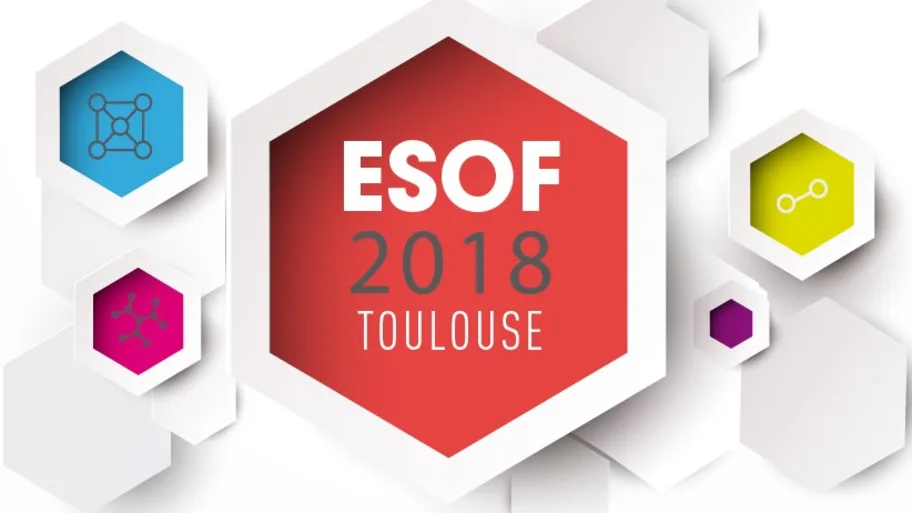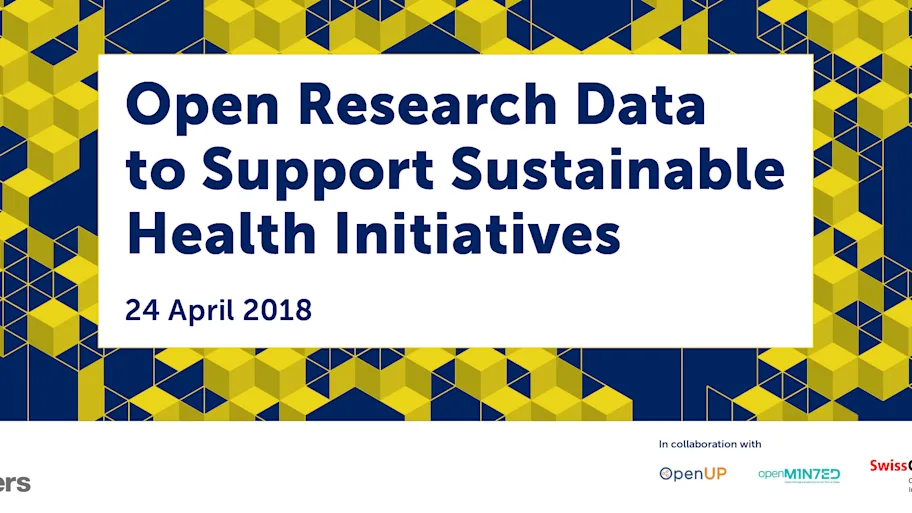
- Science news
- Frontiers news
- Frontiers position statement: Impact of EU copyright reform on open science and innovation
Frontiers position statement: Impact of EU copyright reform on open science and innovation

To innovate effectively, the results of research must be open to all of society. Today, there is exponential growth in the knowledge produced by scientific, medical and technical research, and new tools are being developed that can exploit these data in powerful ways. One of the most promising of these tools is text and data mining (TDM), i.e., the automated computational analysis of digital content.
The European Commission recognises the potential of TDM and is currently considering updating and clarifying the legal provisions for its use. Frontiers, as well as the other signatories of the attached position statement, urge European legislators to support a copyright exception that clearly includes all research bodies (i.e. businesses and SMEs, as well as universities, institutions and citizen scientists) which have lawful access to the digital content. The use of TDM should be made as broad and explicitly unrestricted as possible so as to benefit European society by accelerating scientific progress, innovation and economic growth.
The full Statement is provided below and can be accessed as a PDF. We are pleased that, to date, the following open-science stakeholders have agreed to sign in support of the Statement:
Frontiers (Frederick Fenter, Executive Editor)
ContentMine (Peter Murray-Rust, Director)
Electronic Information for Libraries (Teresa Hackett, Copyright and Libraries Programme Manager)
eLife (Mark Patterson, Executive Director)
Know-Center (Peter Kraker, Researcher)
Hindawi (Paul Peters, CEO)
LIBER (Susan Riley, Executive Director)
Max Planck Digital Library (Frank Sander, General Manager)
OpenAIRE (Natalia Manola, Project Manager)
OpenMinTeD (Stelios Piperidis, Head of Dept., ILSP/Athena RC)
Public Library of Science (Richard Hewitt, Interim CEO)
In order to facilitate a more comprehensive understanding of the open science landscape, the European legislator requires input from the open science community. If your organisation is interested in joining the list of open-science stakeholders who endorse this position statement on EU copyright reform, please contact Frontiers Executive Editor, Frederick Fenter.
Position Statement: Impact of EU copyright reform on open science and innovation
As the proposed Directive1 on copyright in the Digital Single Market passes under the scrutiny of the European Parliament and European Council, we European open science stakeholders strongly urge European legislators to support the rights provisions of a copyright exception for text and data mining (TDM) that is:
mandatory and that cannot be overridden contractually
valid for any commercial or non-commercial scientific research purposes
valid for all those with lawful access (including both public interest research organisations* and businesses) as defined in Option 4 of the EC impact assessment SWD(2016) 301 final2 and the Amsterdam Call to Action on Open Science.3
Science and technology drive modern society. The results of research must become open to all organisations capable of turning this knowledge into innovative solutions, economic prosperity, and solutions for environmental sustainability.
As open science stakeholders – namely, representatives of open-access publishers, citizen scientists, librarians and research organisations – we thus welcome reform of the European copyright law to support research based on text and data mining (TDM), i.e. the automated computational analysis of digital content.
The legal provisions for TDM must be updated and communicated with clarity to allow the expansion of open science and to unlock its benefits for European scientific progress, technological innovation and economic growth, in particular for all those engaged in priority global challenges in areas such as health, agriculture and the environment.
We welcome the provision (Article 3) within the Commission’s proposed Directive1 for a mandatory exception, that cannot be contractually overridden to existing rights to allow research organisations to carry out TDM of content to which they have lawful access for the purposes of scientific research. However, this exception should not be limited to non-profit/public interest research organisations, as defined.*
While we recognise the importance of research by public institutions, they do not (and should not) have a monopoly on knowledge discovery and innovation. This limitation is an artificial and arbitrary impedance that is detrimental to society, as research conducted for commercial purposes may be just as beneficial as non-commercial research. We believe this restriction is against the spirit of the European Open Science Agenda,4 in particular its action to “Better take into account of public benefits, social interest and the situation of academics and innovative industries when reviewing the European copyright legislation” and to foster stronger relationships “between science and society and science and business actors to accelerate innovation”.
The Council of the European Union has stressed the need for the Commission and Member States to support measures to allow all bodies, including businesses and SMEs, to mine results of publicly funded research to which they already have legal access.5
We therefore support the position that Europe should remove barriers to the goals of the digital single market and, rather than limiting copyright reforms to benefit only public institutions, should extend this benefit to businesses and society at large.
*Current definition: a university, a research institute or any other organisation the primary goal of which is to conduct scientific research or to conduct scientific research and provide educational services: (a) on a non-for-profit basis or by reinvesting all the profits in its scientific research; or (b) pursuant to a public interest mission recognised by a Member State; in such a way that the access to the results generated by the scientific research cannot be enjoyed on a preferential basis by an undertaking exercising a decisive influence upon such organisation.
References
European Commission. Proposal for a Directive of the European Parliament and of the Council on copyright in the digital single market. COM(2016) 593 Final. 14 Sept 2016. https://ec.europa.eu/transparency/regdoc/rep/1/2016/EN/1-2016-593-EN-F1-1.PDF
European Commission. Impact assessment on the modernisation of EU copyright rules. SWD(2016) 301 final. 4 Sept 2016. http://eur-lex.europa.eu/legal-content/EN/TXT/?uri=CELEX%3A52016SC0301
Netherlands EU Presidency. Amsterdam Call for Action on Open Science. April 2016. https://english.eu2016.nl/documents/reports/2016/04/04/amsterdam-call-for-action-on-open-science
European Commission Directorate for Research and Innovation. Draft European Open Science Agenda. Feb 2016. http://ec.europa.eu/research/openscience/pdf/draft_european_open_science_agenda.pdf#view=fit&pagemode=none
Council of the European Union. Council Conclusions on the transition towards an open science system (9526/16). 27 May 2016. http://data.consilium.europa.eu/doc/document/ST-9526-2016-INIT/en/pdf






